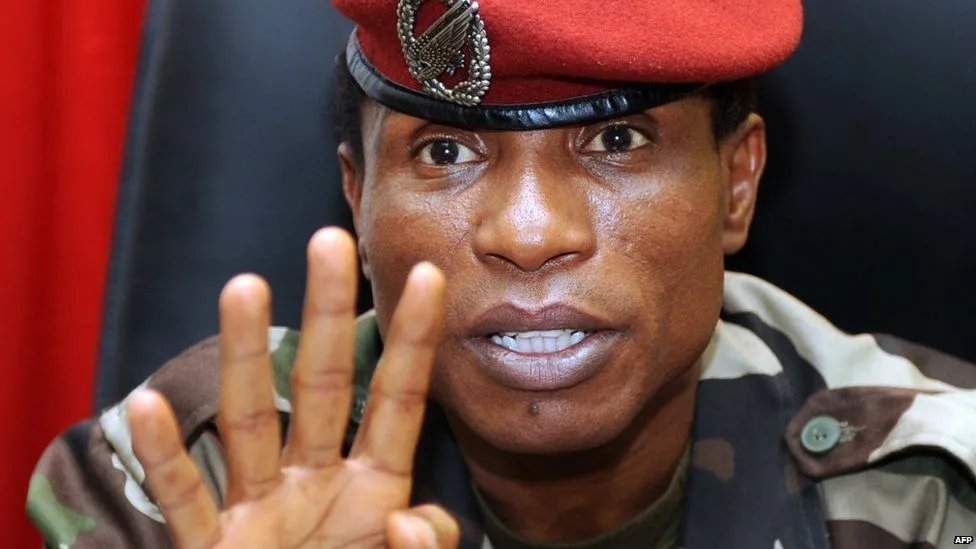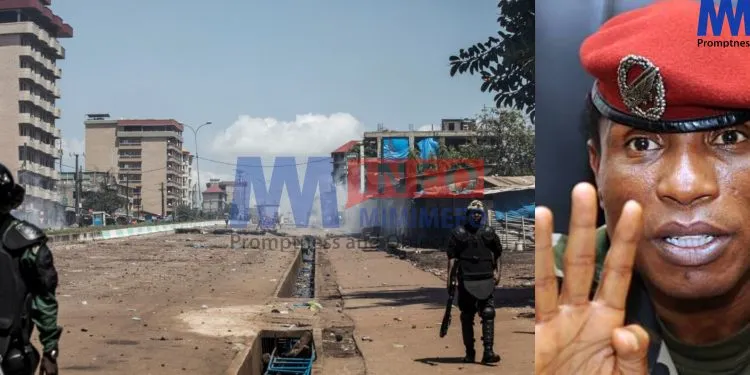There are reports of heavy gunfire and military presence in the Guinean capital, Conakry, with residents describing scenes of chaos and uncertainty in the Kaloum peninsula, the administrative heart of the city, according to interviews conducted by Reuters.
The sounds of gunshots pierced the night at approximately 4 a.m. local time (0400 GMT), and this development was followed by an increase in security measures across Conakry. The entryways to Kaloum were abruptly sealed off.
Kaloum is home to significant government infrastructure, including the presidential palace and other official administrative buildings. Furthermore, it is where Moussa Dadis Camara, the former head of the 2008 military junta, is held in confinement along with other soldiers.
Aminata Soumah, a resident of Kaloum, told Reuters, “There was a lot of shooting at night around 4 a.m. and again this morning we are hearing shots.” Her testimony underscores the deep concerns of local citizens as the turmoil unfolded.
Moussa Dadis Camara allegedly escapes
The situation escalated further with eyewitnesses reporting the blocking of access to the city center by armed individuals. A security official revealed to the BBC that Moussa Dadis Camara, the former head of state, was among several prisoners who managed to escape during the turmoil. Camara is currently undergoing trial for his alleged involvement in the 2009 rally killings, where 156 opposition supporters lost their lives.
Moussa Dadis Camara: A Controversial Figure in Guinean History
Moussa Dadis Camara is a name deeply ingrained in the complex history of Guinea. Born on January 1, 1964, in Koulé, a town located in the Kindia region of the country, Camara’s journey to prominence was filled with both aspirations and controversies.

Camara’s rise to national prominence took a significant turn in December 2008 when he led a military coup against the government of President Lansana Conté, who had ruled Guinea for nearly 24 years. The coup led to Camara’s ascendancy to the position of head of the National Council for Democracy and Development (CNDD), effectively becoming the de facto leader of the country. This marked a pivotal moment in Guinea’s political landscape and was met with mixed reactions both domestically and internationally.
During his time in power, Camara’s leadership was marked by a mixture of authoritarianism and populist appeal. His government sought to address some of the long-standing issues that had plagued Guinea, such as corruption and economic instability. However, his rule was also marred by allegations of human rights abuses, including the violent suppression of political dissent.
One of the darkest chapters of Camara’s leadership unfolded in September 2009 when a massacre occurred during a political rally in Conakry. It is alleged that security forces under Camara’s command were responsible for the deaths of 156 opposition supporters, an event that sent shockwaves through the nation and drew international condemnation. Camara’s involvement in this tragedy remains a subject of ongoing legal proceedings and international scrutiny.
The mounting pressure, both internally and from the international community, eventually led to Camara relinquishing power in January 2010, allowing for a transition to civilian rule in Guinea. He went into exile, initially residing in Burkina Faso before moving to Morocco.
Moussa Dadis Camara’s life story is a testament to the complex and often turbulent nature of Guinean politics. He remains a controversial figure, with a legacy that combines elements of reformist zeal and allegations of human rights violations.
His presence in Kaloum, Conakry, where he was held in custody, has added another layer of complexity to the recent unrest in Guinea, leaving many to ponder the implications of his escape and its potential impact on the nation’s future.
Authorities in Guinea have not yet commented on the situation.
Kate Bih contributed to this report



